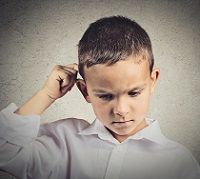Article
Behavioral, Intellectual Problems Challenge Epileptic Kids
Author(s):
The medical problems faced by children with epilepsy are much studied, but in 3 studies presented at the American Epilepsy Society's annual meeting in Seattle, researchers report on these kids' behavioral and intellectual development problems.

The medical problems faced by children with epilepsy are much studied, but in 3 studies presented at the American Epilepsy Society’s annual meeting in Seattle, researchers report on these kids’ behavioral and intellectual development problems.
Researchers at Dalhousie University in Nova Scotia found that the greater the child’s intellectual disability, the lower the chances for improvement in seizure outcomes.
“The degree of intellectual disability in children with epilepsy predicts seizure outcome, authors Peter Camfield and Carol Camfield said. Their conclusion was based on a study of 692 children in Nova Scotia who developed epilepsy between 1977 and 1985.
But for children with mild intellectual impairment, though that condition has social consequences, “it is not important prognostic factor for seizure outcome, particularly if the epilepsy is focal,” the team said.
They defined mild intellectual disability as an IQ of 50 to 69, moderate as an IQ of 35 to 49, and anything below that as severe disability.
They found that 21% of their subjects had an intellectual disability with severe disability more common than moderate or mild.
In the Connecticut Study of Epilepsy, research looked at how IQ scores and parent-reported Child Behavior Check List (CBCL) scores of children with epilepsy compared with controls.
Soyong Eom and colleagues said that the children with epilepsy had worse CBCL scores and social competency scores across the board, but the team found no significant differences in IQ between the epileptic kids and controls.
The third study made an assumption that “children with chronic epilepsy have high rates of emotional and behavioral problems compared to health peers,” and went on to look at the natural history of these disorders.
Jana Jones and colleagues looked at 171 children ages 8 to 18, 98 with epilepsy and 73 controls.
The researchers found the children with epilepsy were likely to be depressed (16 kids with epilepsy vs. 2 controls) anxiety (34 vs. 11) and ADHD (24 vs. 5).
“At baseline, depression, anxiety and ADHD are more prevalent in children with epilepsy compared to controls,” they said, “Children with focal seizures were significantly more likely to have a psychiatric disorder compared to those with generalized seizures.”




